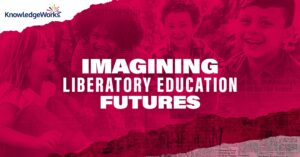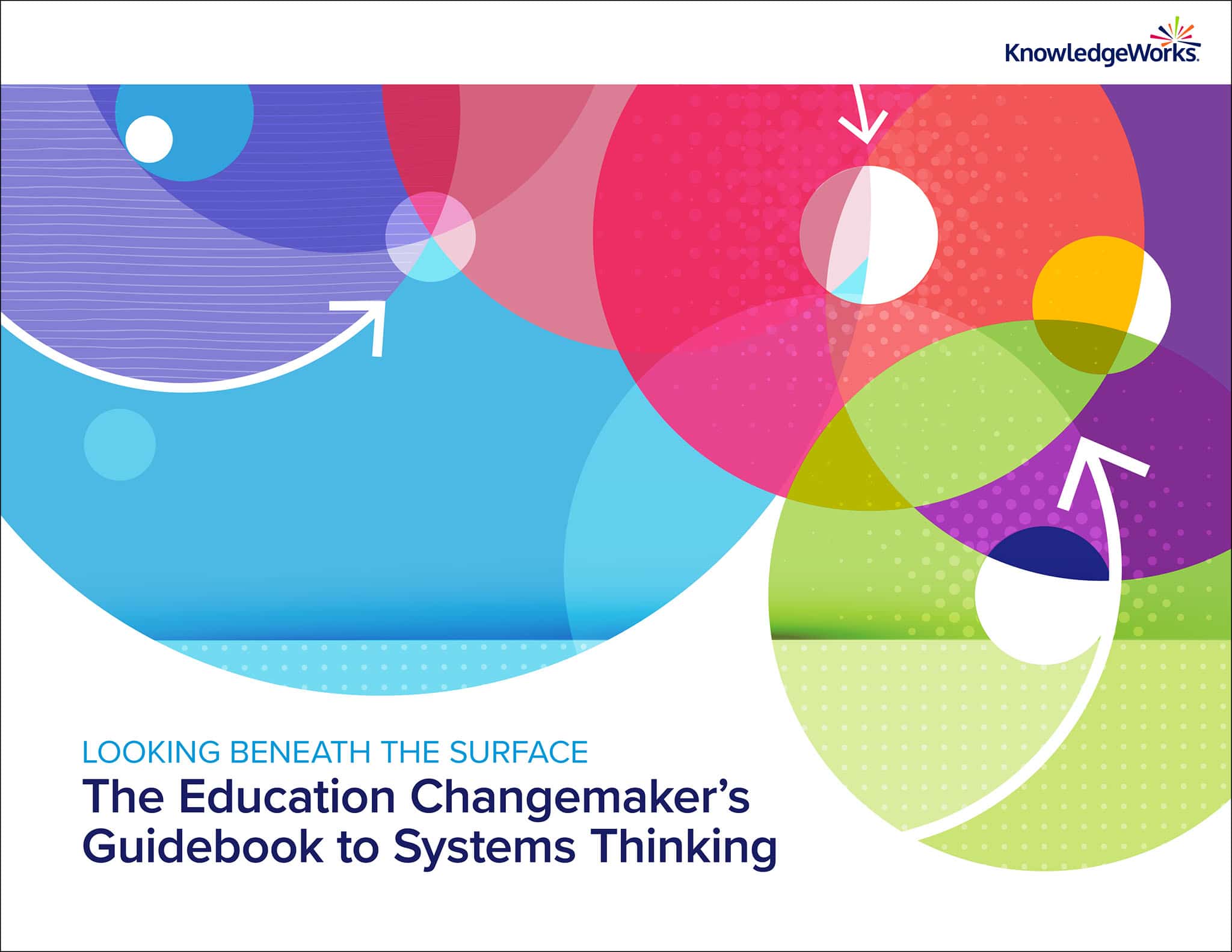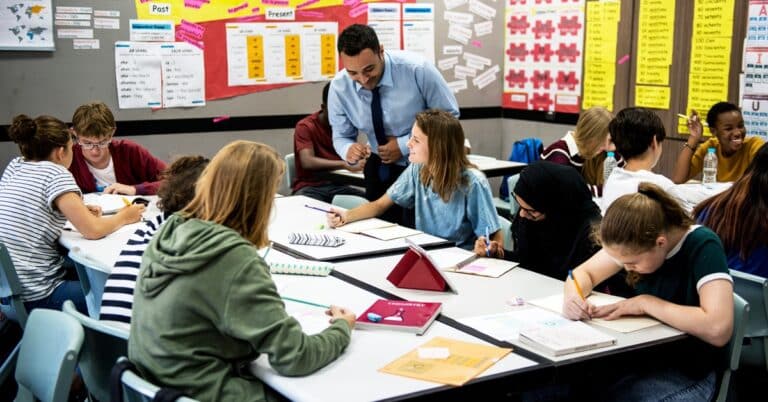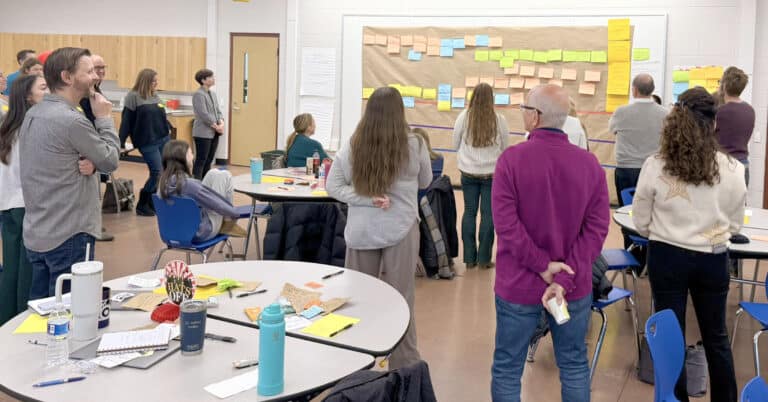The education system influences students’ understanding of their own identities. By the same measure, their identities help shape the education system. Because students’ senses of self are so intertwined with education, their voices need to be centered in any effort to shift teaching and learning.
System behavior is a function of the structure, so the results and the outcomes that we see in the world and in society are not accidental. They are the results of the way that systems are organized and put together. We have policies, people, beliefs, physical structures and all these other things that interact in certain ways that lead to the outcomes that we see.
Helping students understand systems and their dynamics helps them find agency to make more authentic, effective change in education, a system with which they interact for decades of their lives.
Along with Cycle and Rhode Island College Youth Development program, KnowledgeWorks engaged 10 high school students from the Met High School in Providence, Rhode Island for the Youth Action Researchers at the Intersection (YARI) project. We helped them to investigate their learning journeys and the systems surrounding their learning journeys and then develop solutions so that schools can better respond to students at the intersection like them – students from historically marginalized yet resilient communities.

The Met High School is a model for creating a space for liberatory education to grow. Learn more about liberatory education and start thinking about the liberatory education futures you want for your learning community.
Learn more >>
In this project, we supported them through four stages: ask, look, discover and share. Using scaffolds we provided, the students pursued a research question of their choice that they were passionate about, and at the center was their identity. We provided them with a space to bring their full selves, a space in which their lived experiences were recognized as assets and as sources of expertise.
They were able to freely self-reflect on where they were within their learning journey and mapped those journeys out with art materials. The students identified points within their learning where they had wonderful learning experiences but also those where they had bad learning experiences. Then, as they mapped it out, we encouraged them to reflect on how their identity came into play within those experiences and how those experiences were influenced by larger systems. In a mock rally, they then used these points of reflection to advocate for the future of learning they wanted.
Their experiences, based on their identities, led participants to their research questions.
- One research group, consisting of two students and their adult mentor, all women of color, pursued a question on racial and ethnic dynamics within classrooms.
- Another team shared very difficult experiences being othered in middle school due to their learning differences and researched various accommodations provided within classrooms for students with different learning pathways.
- Other students shared family immigration and English-learner backgrounds, motivating them to pursue a comparative study of English as a Second Language/English Language Learner programs between traditional schools and those that pursue relatively more personalized learning approaches.
Explore how educators and policymakers support learners with tools for success to lead in climate change.
Learn more >>
All of these research questions treated students’ identities and experiences as critical data points in the quest to understand and change the education system while also zooming out beyond any individual experience to look at what might need to change in the system as a whole.
Students need to be given the space where they are validated, recognized and heard in their fullest self – whatever that carries, including the culture where they’re from. In truly centering the student and teaching them that they are influenced by systems and also can influence systems, they feel empowered to have a say and even be a part of a solution to transform the system to better respond to learners’ needs.
Students from the YARI project were able to recognize and value the truth in their experiences and those of their peers and then look beneath the surface at the systems shaping those experiences. Education leaders, education researchers and educators can learn from the efforts of these young people and do the same.
Explore the theories, language, mindsets and tools of systems thinking with Looking Beneath the Surface: The Education Changemaker’s Guidebook to Systems Thinking.





